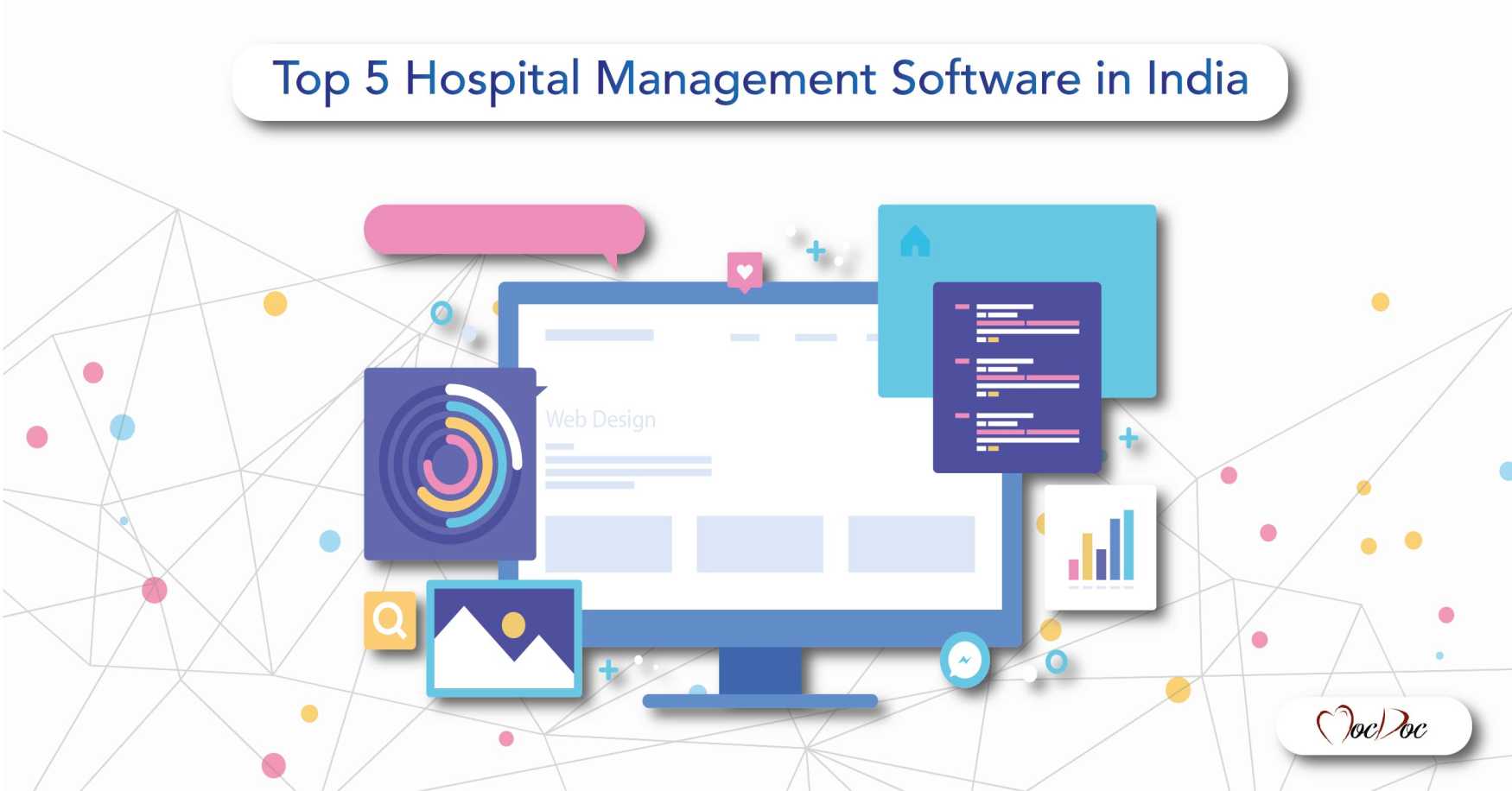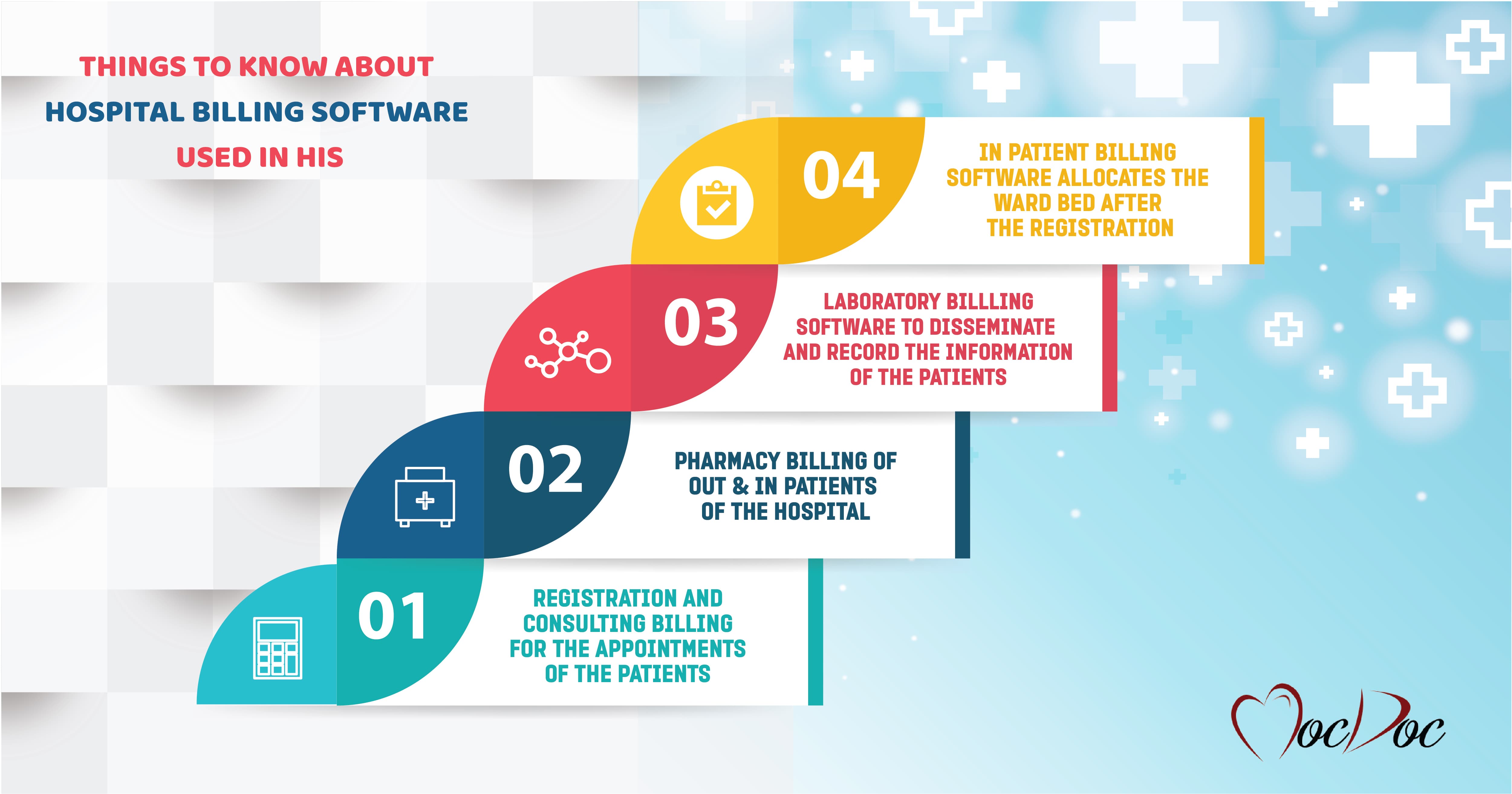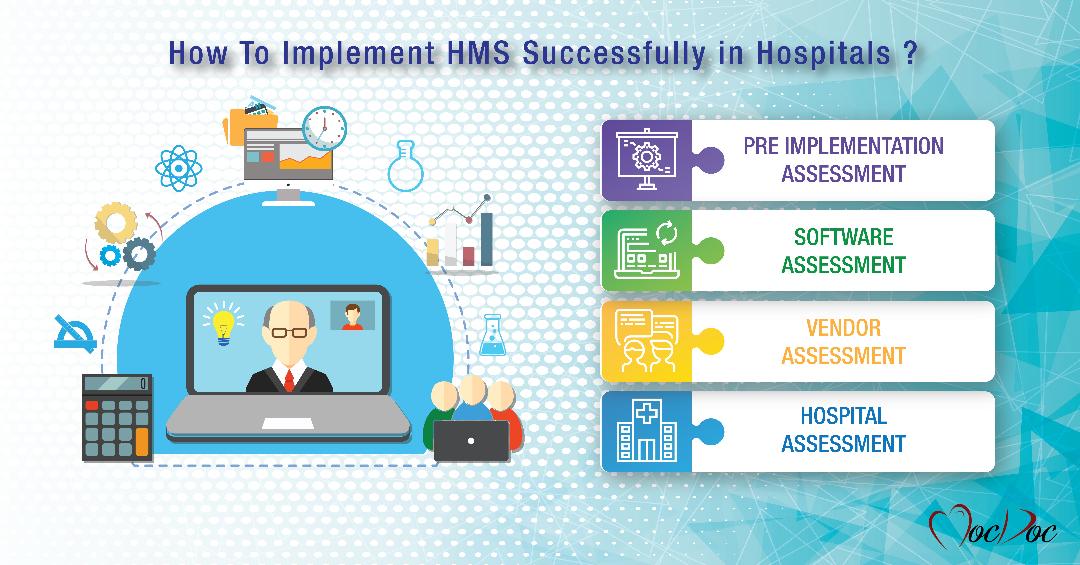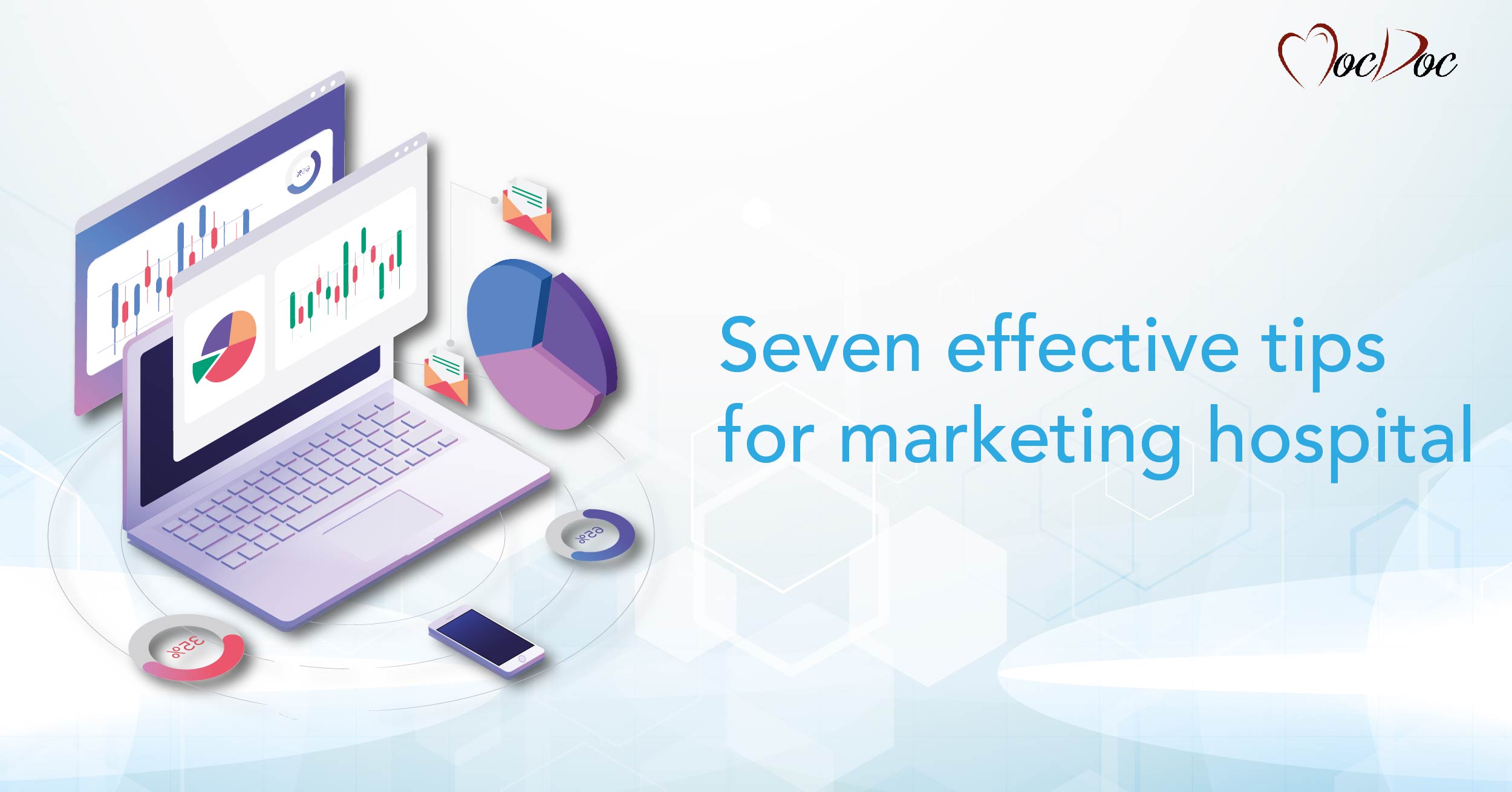MocDoc's Offerings
A detailed view of Hospital Management System (HMS)
Published By
Sanjana
2018100416:07:09
Category HMS
A hospital management system was introduced with the cause of helping hospitals speed up their processes.
What is Hospital Management System (HMS):
The hospital management system is a computer system that helps manage the information related to healthcare and aids in the job completion of healthcare providers effectively. They manage the data related to all departments of healthcare such as,
- Clinical Management
- Financial Management
- Laboratory Management
- Inpatient Management
- Outpatient Management
- Operation theater Management
- Materials Management
- Nursing Management
- Pharmaceutical Management
- Radiology Management
- Pathology lab etc.
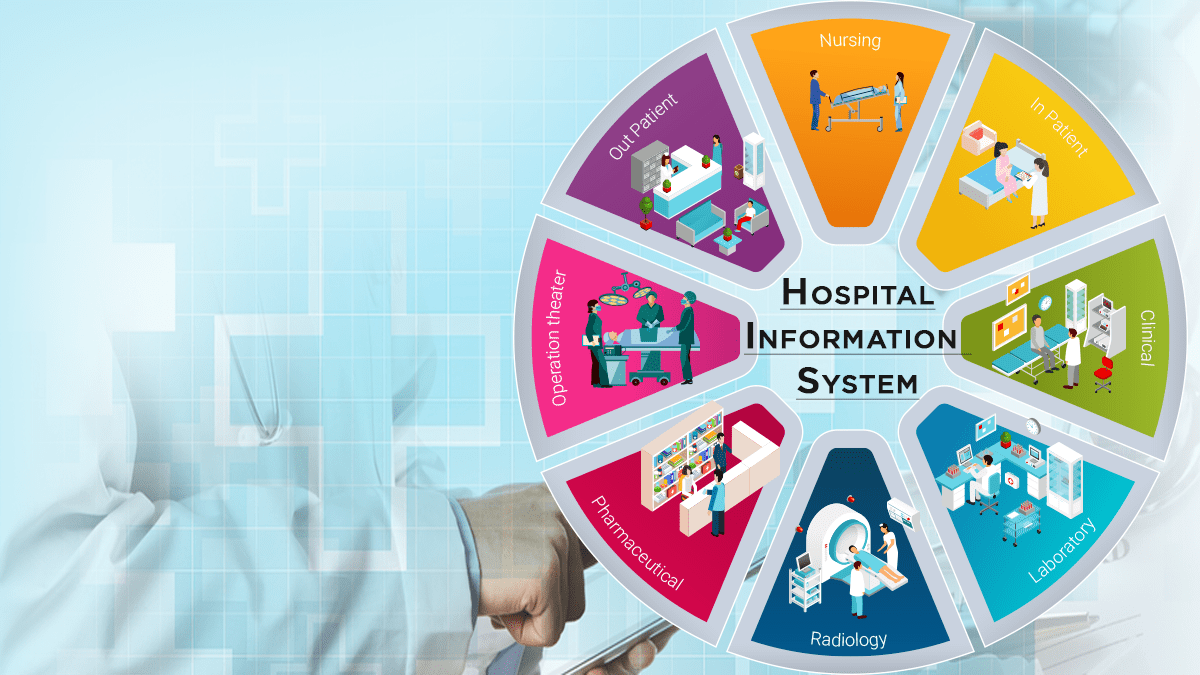
HMS came into the picture of hospital management as early as 1960 and has ever since been evolving and synchronizing with the technologies while modernizing healthcare facilities. In today’s world, the management of healthcare starts from the hands of the patients through their mobile phones and facilitates the needs of the patient.
Why is a Hospital Management System (HMS) important for a hospital?
Hospital Management System (HMS) was introduced to solve the complications coming from managing all the paperwork of every patient associated with the various departments of hospitalization with confidentiality. HMS provides the ability to manage all the paperwork in one place, reducing the work of staff in arranging and analyzing the paperwork of the patients. HMS does many works like:
- Maintain the medical records of the patient.
- Maintain the contact details of the patient.
- Keep track of the appointment dates.
- Save the insurance information for later reference.
- Tracking the bill payments.
The advantages of a Hospital Management System (HMS) can be pinpointed to the following:
- Time-saving Technology
- Improved Efficiency by avoiding human errors
- Reduces scope for Error
- Data security and correct data retrieval made possible
- Cost-effective and easily manageable
- Easy access to patient data with correct patient history
- Improved patient care made possible
- Easy monitoring of supplies in inventory
- Reduces the work of documentation
- Better Audit controls and policy compliance.
Features of Hospital Management System (HMS) Software:
Appointment Management:
For hospitals with their websites, the integration of appointment widgets allows patients to easily schedule appointments online. This feature enhances the user experience by providing a convenient and efficient way for visitors to the hospital's website to book their appointments with ease.
Billing Management:
A billing system is designed to work in conjunction with treatments, lab services, and radiology procedures. It sends alerts for discount authorization and captures dues automatically. With the option to bill both before and after consultations, it provides flexibility for a convenient billing experience.
Prescription Management:
Managing common prescriptions and recent prescriptions has never been easier with our prescription management system. This feature also allows healthcare professionals to display the availability of prescribed medications in the pharmacy. As an added convenience, the system enables the sending of SMS prescriptions directly to patients, ensuring they have quick and easy access to the information they need for their prescribed medications.
Discharge Summary:
To streamline the discharge summary process, we've developed user-friendly templates. It seamlessly integrates with ICD10 for accurate coding and comprehensive documentation. Additionally, there's an option to prevent the discharge summary until the inpatient bill is closed, ensuring a synchronized and efficient workflow in managing patient records.
Operation Theatre Management:
Operation Theatre Management includes an automatic notification feature that informs customers of their test results. The Lab Notification module ensures efficient communication by sending test reports via email or SMS. This automated process enhances the overall experience, providing timely and secure delivery of critical information to the concerned individuals.
Pharmacy Management System:
To handle various aspects of pharmacy operations efficiently, we developed a comprehensive Pharmacy Management System. This includes robust stock management, seamless prescription integration, handling ward requests, monitoring stock movement, and generating intelligent reports. With this system in place, pharmacies can streamline their processes, ensuring accurate stock levels, smooth prescription handling, and access to insightful reports for informed decision-making.
Laboratory Management System:
Laboratory Management System are capable of handling the entire spectrum of laboratory operations. This includes efficient order management, customized report generation, smart notifications for timely updates, credit settlement features, detailed MIS reports, analytics for data-driven insights, and a dedicated app for phlebotomists. This integrated system ensures the smooth and organized functioning of laboratory processes, providing advanced features for enhanced efficiency and accurate management of laboratory-related tasks.
Master Information Systems:
Gain convenient access to the entire Management Information System (MIS) data right from the palm of your hand.
Manage Multiple Locations:
Simplify your operational oversight by effortlessly adding and managing numerous branches, all through the convenience of a single account. This streamlined approach allows for efficient monitoring and control over multiple locations, promoting ease of administration and ensuring a cohesive management experience across your entire network.
Benefits of Hospital Management System (HMS) Software:
We have so far clarified the importance of the Hospital Management System (HMS), it is your responsibility to pick out the right kind of HMS for your needs and purposes. Here we give more information on the benefits of various Hospital Management Systems and the impact they create on hospital systems.
Easy Patient data retrieval:
HMS makes it possible to access all the data related to a patient via a system using a few simple clicks. Information like patient history, current illness, doctors involved, test reports taken, billing information, and many more can be made visible to the user. These data will help to connect the dots about the patient, like specific diagnosis, related treatment, and medication.
The Electronic Medical Record (EMR) or Electronic Health Record (EHR):
This electronic medical record system can be viewed as a patient’s health chart. It retrieves information based on the patient’s name medical record number or the physician’s record number.
Increased Data security:
The patient data can be kept a hundred percent safe by using HMS in your hospital. It can be made accessible by only a limited amount of authorized personnel. With HMS, all the data is stored on a server or cloud and kept safe by just securing the login information.
Improve Visibility and Transparency:
Hospital Management System (HMS) improves visibility and transparency in the complete management process and all records.
Streamline Accurate Reporting:
It helps streamline accurate reporting with the help of updated and accurate records.
Improved Quality Control:
The Hospital Management System improves the quality control of the products and services of the hospital.
Improved Management Visibility:
It also improves the management visibility of the hospital, all information, and data regarding the patient, doctor, and medicine can be seen by any department easily.
Ease to Access System Facilities:
The Hospital Management System makes it easy to get access to the management system facilities for authorized users and keeps it safe from unauthorized users.
Cost Effective:
HMS not only saves time in the hospital but also is cost-effective in decreasing the number of people working on the system of manual entry of data and paperwork. The implementation of His will decrease the human intervention in the system thereby avoiding human-caused errors.
Every hospital has different needs, analyze what is best for your requirements and install the appropriate HMS system.
Related Articles
Top 5 Online Hospital Manageme...
Hospital Management Software is a vital business t..... Read more
Things to know about Hospital ...
Billing software is one of the essential software ..... Read more
How to Implement HMS Successfu...
When compared to other industries, the healthcare ..... Read more
Seven effective tips for marke...
Inspiring patients to reach your hospital is not e..... Read more
